Anyone can fix a broken light bulb or sink, but what about fixing complex machines like tractors, combines, and other heavy machinery? If you have a knack for mechanical things and want to be an equipment maintenance technician or repairman, this resume example and breakdown of skills will help you land your dream job. Working as a maintenance technician or repairperson requires logical thinking and troubleshooting skills. These jobs may require manual labor and on-site work. You’ll also need to thoroughly understand the operation of the heavy machinery you are tasked with repairing. Keeping track of parts is another vital responsibility, as well as being able to document repairs in log books, service records, or other maintenance documents. Strong attention to detail is also necessary since so much documentation must be recorded accurately. Read on to learn more about how to tailor this resume example for you!
Maintenance and repair Resume Example

Download This Maintenance and repair Resume as PDF
Maintenance Engineer Resume Example
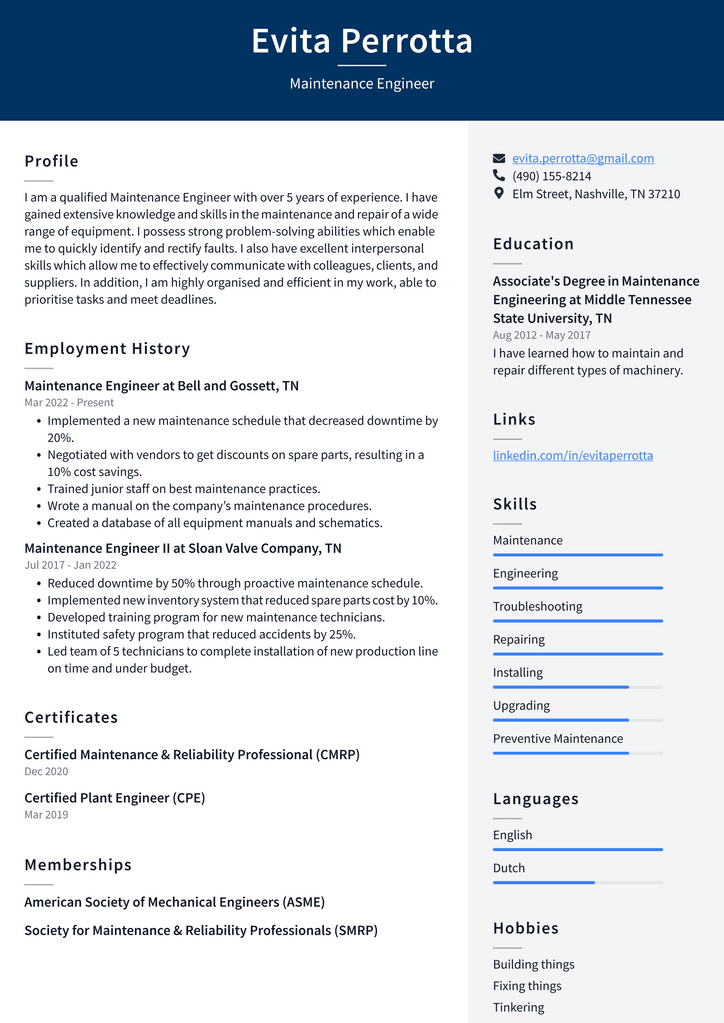
Download This Maintenance Engineer Resume as PDF
Maintenance Supervisor Resume Example
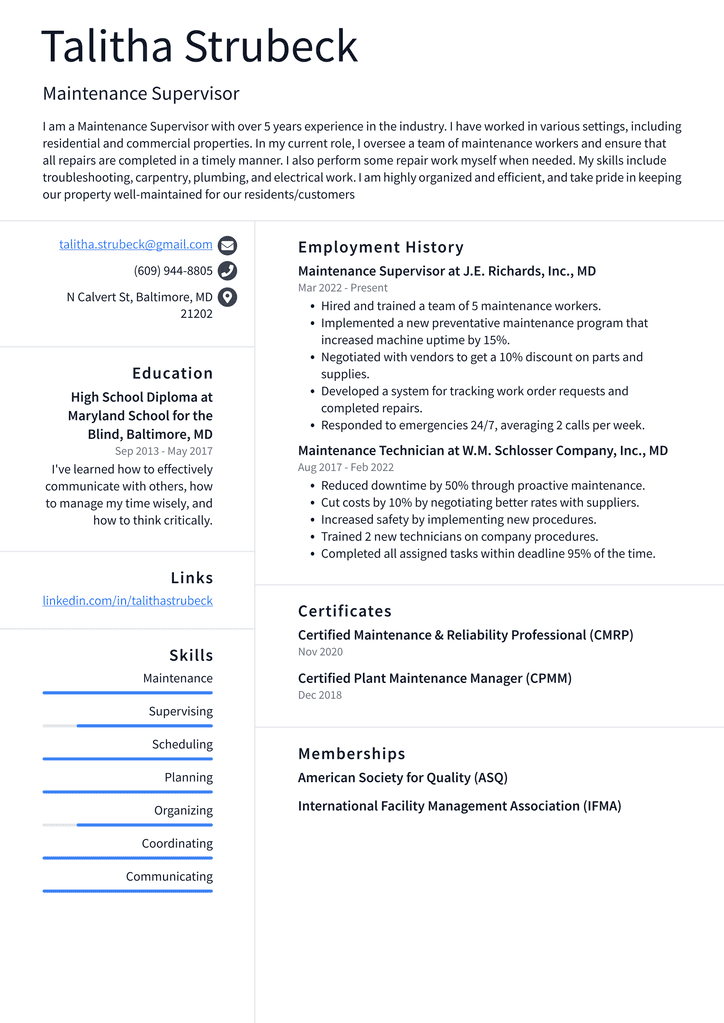
Download This Maintenance Supervisor Resume as PDF
Facilities Maintenance Manager Resume Example
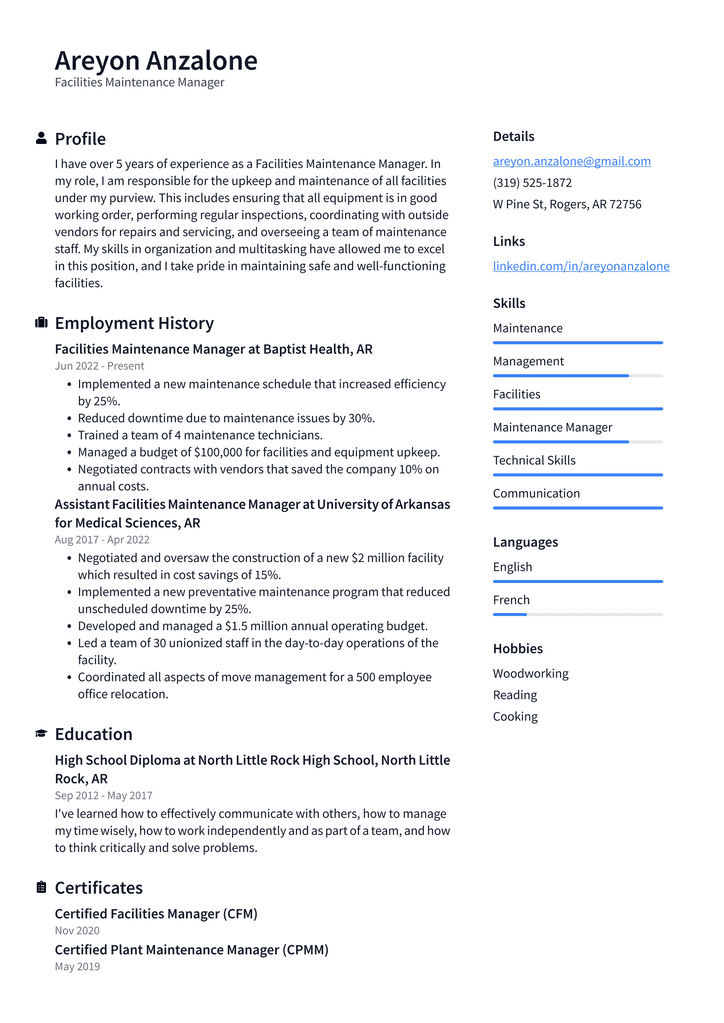
Download This Facilities Maintenance Manager Resume as PDF
Maintenance Planner Resume Example
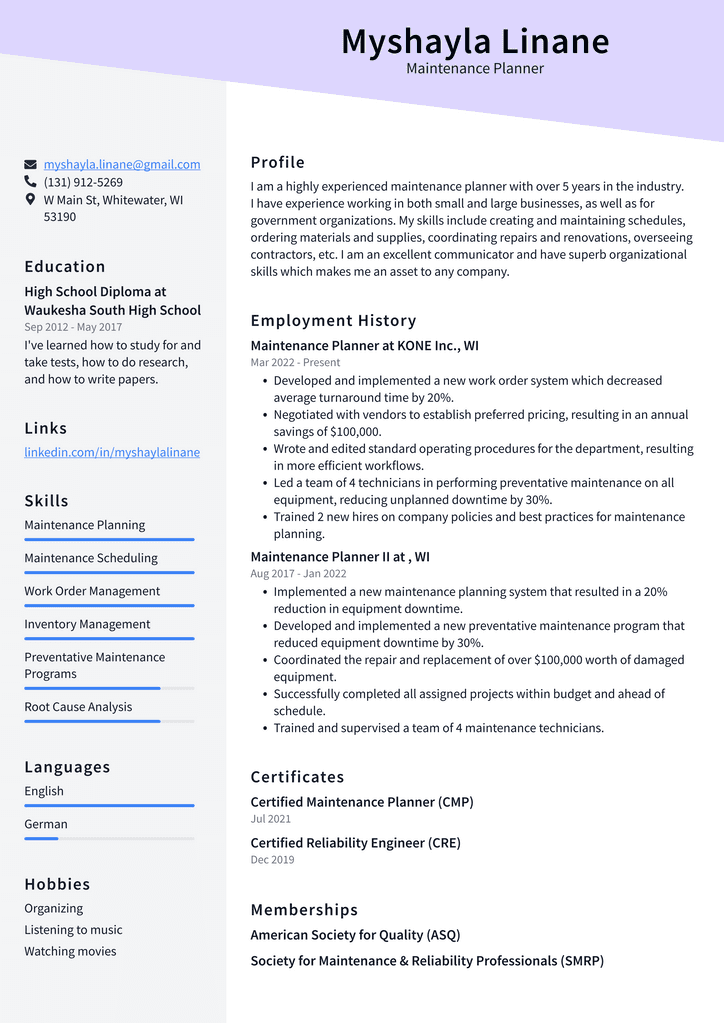
Download This Maintenance Planner Resume as PDF
Facilities Maintenance Technician Resume Example
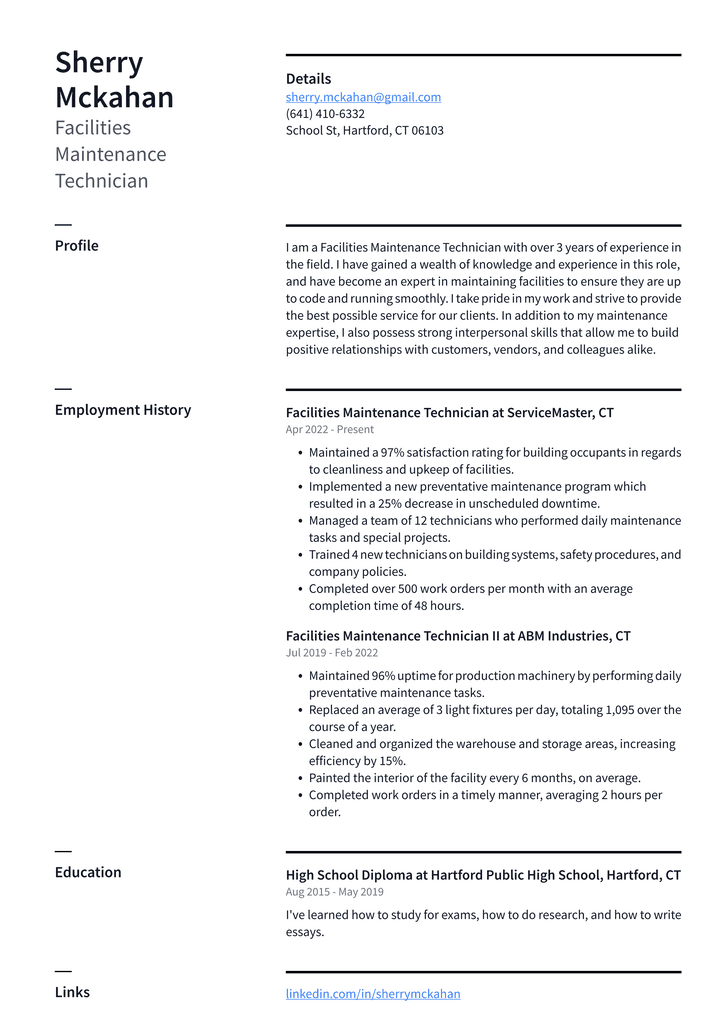
Download This Facilities Maintenance Technician Resume as PDF
Maintenance Manager Resume Example
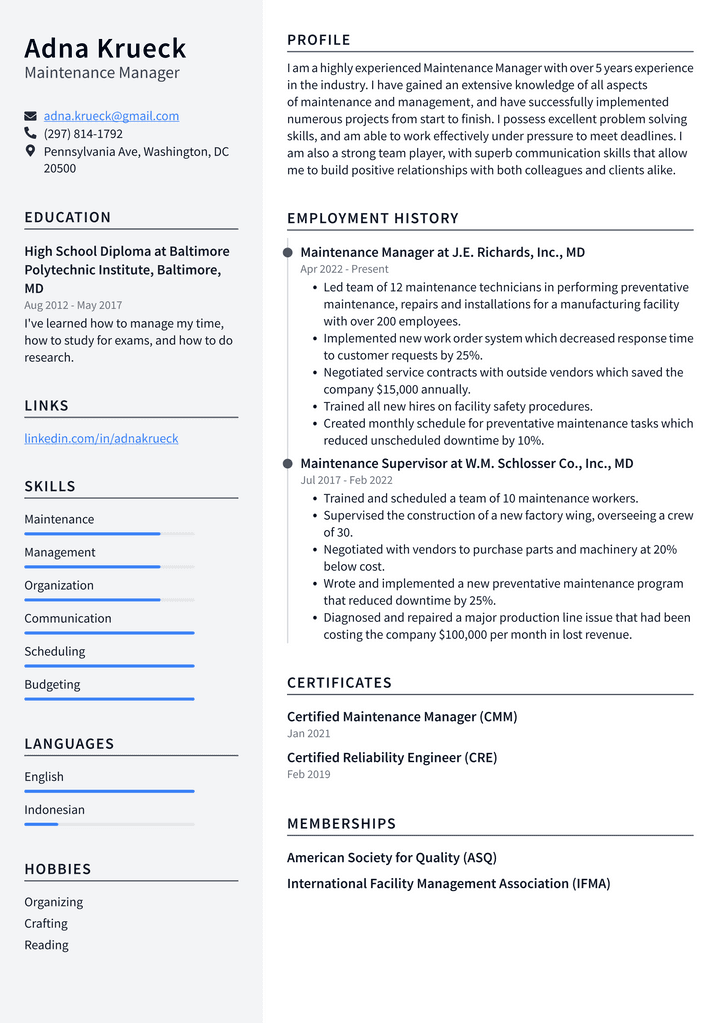
Download This Maintenance Manager Resume as PDF
Check Out These Specs Before Writing Your Resume
This resume is for a heavy equipment technician or mechanic working in the agricultural sector. The heavy equipment technician works under the supervision of the equipment manager or supervisor. The farm sector is in high demand for skilled technicians, and this industry has a lot of job opportunities. In addition, the agricultural sector has a wide variety of heavy machinery that requires regular maintenance and repair. Therefore, the agricultural sector is high risk and needs workers to be trained and certified in specific areas of the machinery. The technician’s job duties include, but are not limited to, testing, adjusting, repairing, and overhauling machinery, welding and fabricating tools, and inspecting and repairing devices.
Summary of Duties
A heavy equipment technician is responsible for repairing, servicing, and inspecting heavy machinery to ensure it is safe to operate. The technician will work with operators to determine the cause of a breakdown and repair the machinery so it can continue to operate. Tractors, combines, bulldozers, loaders, and other heavy machinery may be used in the agricultural sector. The technician may also need to repair and maintain additional equipment like shop machinery, pumps, and electrical equipment. The technician may also be required to assist in fabricating new equipment.
Repair Technician Skills
A technician’s ability to work with machinery is essential in this job. Experience with the operation and maintenance of the specific machinery is critical. A technician should be able to use good judgment and work independently and in a group environment as needed. Reading and interpreting schematics, diagrams, wiring diagrams, and manuals is vital. Attention to detail is critical when documenting repairs and keeping track of parts. Communication skills are essential to work with operators and supervisors when troubleshooting breakdowns. A technician should have good problem-solving abilities and be able to think critically when diagnosing problems. The technician should be comfortable working outdoors and in various weather conditions. They may be required to lift and move heavy parts and work in awkward positions.
Maintenance Technician Skills
A maintenance technician is responsible for the upkeep and repair of machinery used to produce materials such as crops, feed, and other agricultural products. The technician will inspect and perform routine maintenance on machineries such as leveling or plowing equipment, conveyor systems, seeders, and tractors. The technician may also maintain refrigeration units or other methods used for storage. The maintenance technician may also be required to repair or replace machinery parts such as belts, bearings, or other components. The maintenance technician may also assist with installing and repairing electrical equipment such as circuit breakers and wiring. The technician should have good problem-solving skills and be able to think critically. They should be able to troubleshoot issues, work independently, and work in a group environment as needed. Reading and interpreting schematics, diagrams, wiring diagrams, and manuals is crucial. In addition, the technician should have a working knowledge of electrical systems, hydraulics, and pneumatics.
Conclusion
A heavy equipment technician is responsible for repairing, servicing, and inspecting heavy machinery to ensure it is safe to operate. The technician will work with operators to determine the cause of a breakdown and repair the machinery so it can continue to operate. Tractors, combines, bulldozers, loaders, and other heavy machinery may be used in the agricultural sector. The technician may also need to repair and maintain additional equipment like shop machinery, pumps, and electrical equipment. The technician may also be required to assist in fabricating new equipment.